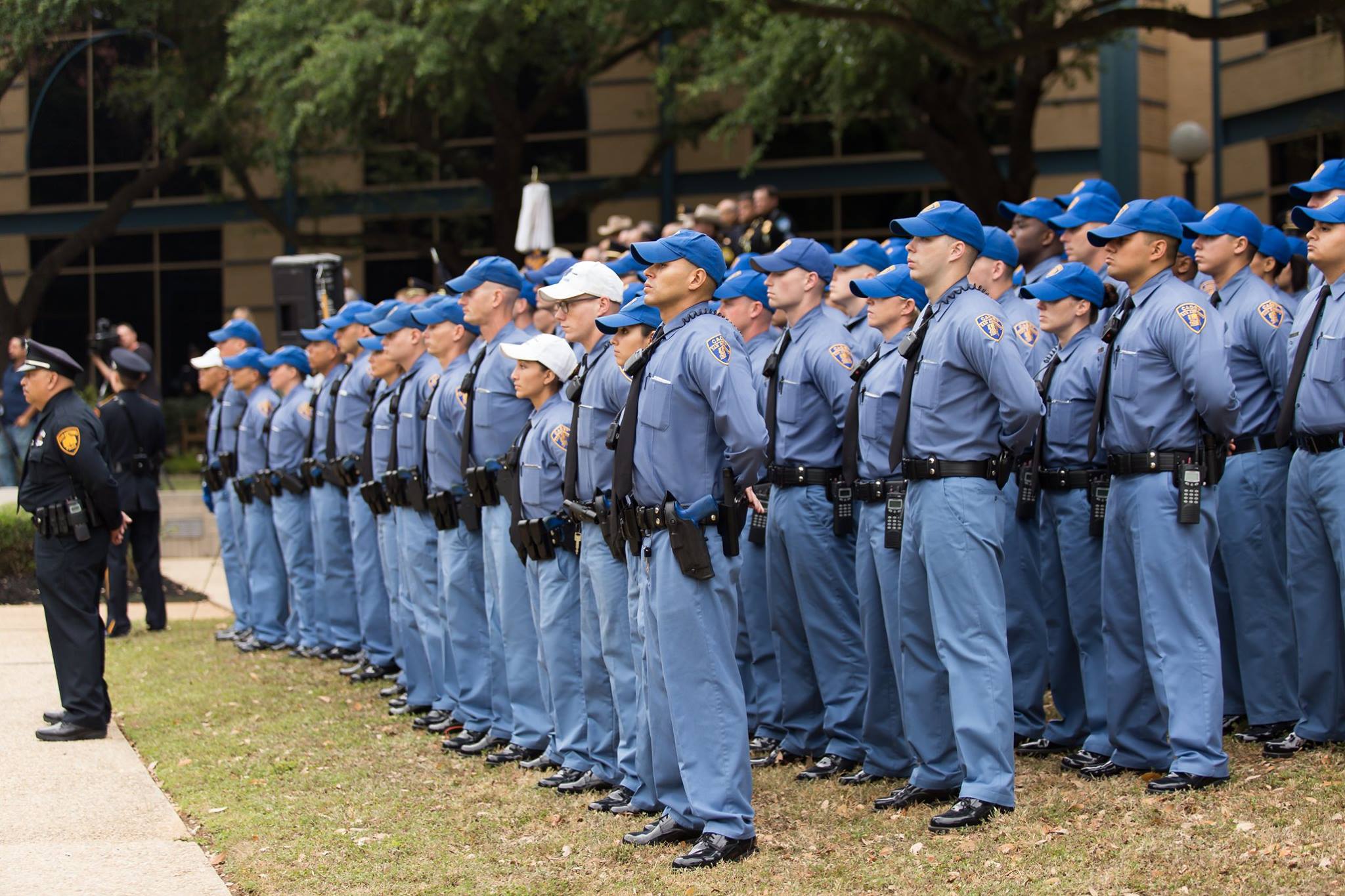Contact Us
To provide feedback on the Community Policing Dispatch, e-mail the editorial board at CPDispatch@usdoj.gov.
To obtain details on COPS Office programs, publications, and resources, contact the COPS Office Response Center at 800-421-6770 or AskCopsRC@usdoj.gov

U.S. Department of Justice
Office of Community Oriented Policing Services
Washington, DC 20530
 As one of three psychologists within the San Antonio Police Department Psychological Services unit, Dr. Brandi Burque’s duties include counseling officers and their families, training academy cadets, on-call response for hostage negotiations, and return to duty evaluations. In 2013, Burque helped SAPD implement Performance and Recovery Optimization (PRO) training, a wellness program embedded throughout SAPD that provides holistic education to enhance the performance and wellness of SAPD officers. PRO was developed in conjunction with the United States Air Force Security Forces and their Defender’s Edge Program - a new approach to stress management.
As one of three psychologists within the San Antonio Police Department Psychological Services unit, Dr. Brandi Burque’s duties include counseling officers and their families, training academy cadets, on-call response for hostage negotiations, and return to duty evaluations. In 2013, Burque helped SAPD implement Performance and Recovery Optimization (PRO) training, a wellness program embedded throughout SAPD that provides holistic education to enhance the performance and wellness of SAPD officers. PRO was developed in conjunction with the United States Air Force Security Forces and their Defender’s Edge Program - a new approach to stress management.
PRO has a number of unique aspects that can be attributed to the expert development, focus on finding the latest and best research to help officer performance, and the support of SAPD leadership and officers. Unlike many other OSW programs, PRO is embedded in all areas of the department: after 8 hours of classroom education in the academy, cadets also learn about optimal response in driving, tactics and firearms training, and in peer support throughout their career. Feedback from cadets has been very positive and the cadets have requested more briefs and debriefs during the academy to help them prepare for the stress of regular duty and critical incidents.
But, praise is not limited to cadets. Throughout 2016, a five hour block of in-service PRO training was conducted for all officers; feedback from a 22-year veteran was that he finally felt that someone 'gets him' and 'hears him.' One reason for the successful classroom training, both cadet and in-service, is that a team of trainers conducts the modules. The team includes either Burque or another psychologist for the scientific and technical information, while a training officer or peer mentor provides real life examples and support for the PRO techniques.
PRO training involves eight module topics:
- Optimal response for officers in performance and stress management
- Ways to modulate physical response, such as combat breathing
- Mindset as an officer, family member, friend, community member
- Performance self-talk
- Nutrition
- Fitness
- Recharging through proper sleep, hobbies, outside interests
- Critical incident response
Aspects of the PRO training are highlighted in different ways across the department, and the team is always working to find the latest and best practices to help officers perform well and lead a healthy and happy life. New training is introduced but is not kept unless there is agreement on positive returns. Different elements of PRO may work well for some officers, but not all, so the program has flexibility for implementation within and beyond the SAPD.
In 2018, the agency is implementing a three-day program available to any officer for professional development. In addition, Burque is working with the University of Texas San Antonio Performance Lab to secure funding for a study to determine an optimal performance zone for different scenarios, such as critical response in active shooter incidents.
A psychological services unit within a law enforcement agency is fairly unique, but Burque also provides resources such as the new psychological services group within the Major Cities Chiefs Association and the psychological services division within the International Association of Chiefs of Police. Development of PRO and the Defender’s Edge Program also rely heavily on sports and military performance research, as well as on experts such as Dr. Michael Asken, who is a published public safety psychologist. Burque stresses that most current research is non-proprietary and the important aspects of wellness programs are integration in all aspects of the department, as well as the support of leadership and engagement in the wellness program.
For more information, please contact Dr. Brandi Burque at brandipro2016@gmail.com
Elizabeth Simpson
Analyst (COPS)
Editor-in-Chief
Subscribe to Email Updates
To sign up for monthly updates or to access your subscriber preferences, please enter your email address in the Subscribe box.






